I’ve always wanted to run my own company. But something I recently read about was that starting a business is very different to managing it daily once it’s taken off.
Both endeavors require different skill sets. Some people are really good at going from 0 to 1. Others enjoy and are good at running the day to day and optimizing business processes.
In this interview, I spoke with Ayman Al-Abdullah, CEO of AppSumo. Ayman is an extremely skilled operator and our discussion offers some valuable insights into what it takes to run a company that does well over $10mm in revenue each year.
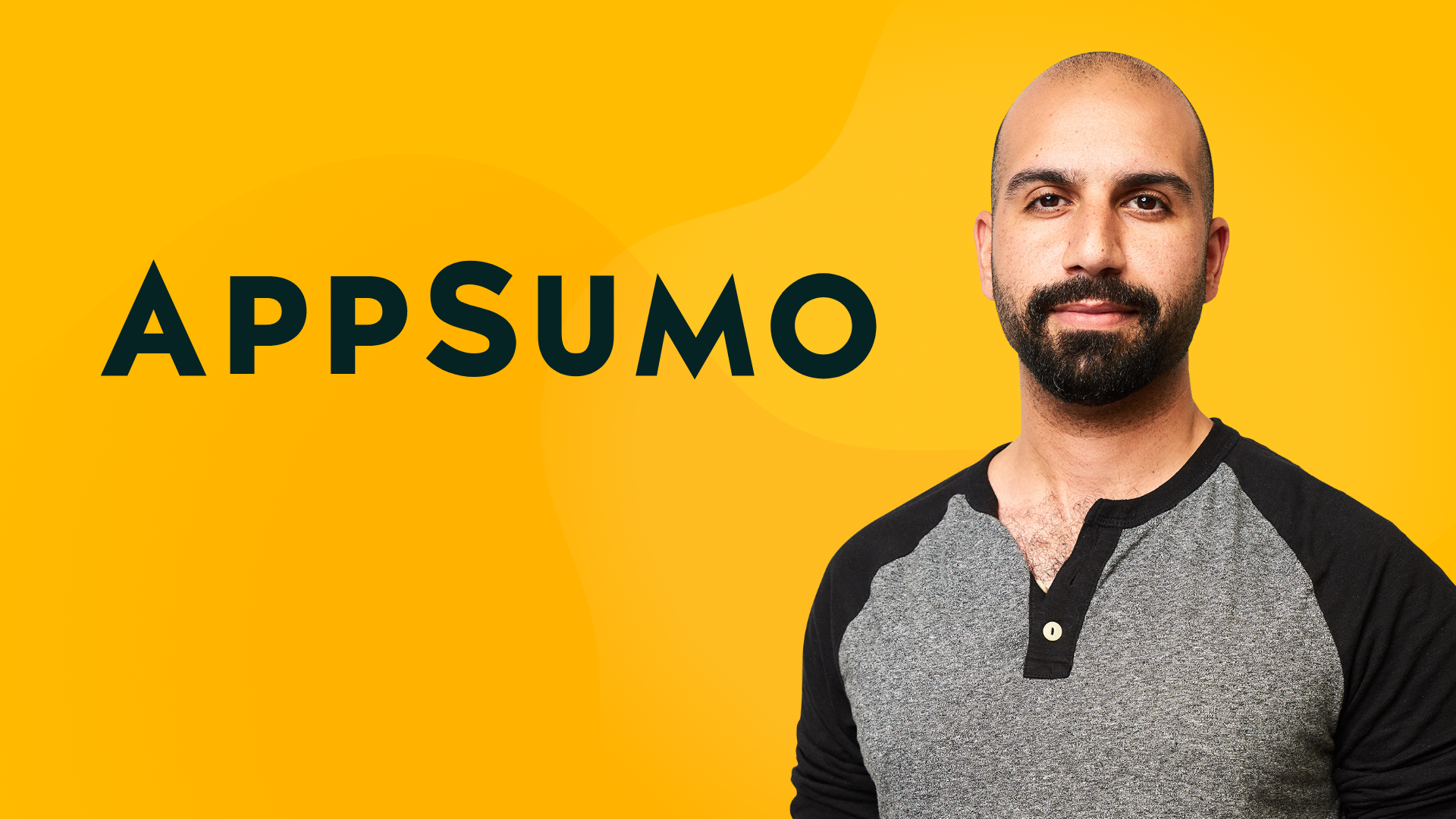
I’ve interviewed Data Scientists, Software Engineers, Product Managers - today, I interview a CEO who gives an honest reflection of what the job is like and how he got there.
The entrepreneurial bug was always there. At the time, I was super interested in tech. I was working at Nordstrom at the time and over there they would bring in the world’s best fashion advisors to come give seminars. These seminars would be about basic business skills, and what I would do is take those lessons and share them with my fraternity.
People really started loving those presentations and told me to put them online. So I created a website called Bravado Living and I started writing up all of these articles. So I had like 80 articles and at the time I didn’t even know what SEO was.
But Wordpress made it really intuitive to keep publishing content and I would keep including a few keywords in each article. I started ranking for certain keywords and getting tons of traffic on the platform. It got to the point where I was one of the top affiliates for some top fashion brands and things were really picking up.
I also ended up starting a financial consulting company which was a lot of fun. At the end of the day, though, when I thought about what I wanted to do next, I had gotten some advice that you want to get the very best job you can land out of college. Mainly because it’s pretty rare for you to take a step back.
So when I got out of college, I was lucky enough to get accepted to Microsoft. And so I worked there for a few years and I learnt what it took to succeed and excel at an organization of that size.
I knew I didn’t want to do accounting to begin with. The reason I did accounting was because I knew I always wanted to stay in business. And I looked at all the business books that I was naturally reading - I loved books on marketing, copywriting, coding, design etc - but what I liked the least was accounting.
So I decided to get my degree in Accounting because I knew that when I get out of here, I’m never going to read these books again. So might as well focus on it now because I know that it’ll come in handy later.
What’s funny now is that 12 years later, I’m getting this renewed love of accounting because as CEO, accounting is the language of business, and you have to deeply understand your numbers in order to have the nuance to reach your metrics.
The Microsoft I worked at is very different to the Microsoft now - for instance, back then, we were getting crushed by Apple. It was very much an underdog at the time. And honestly, my entire career has been about getting the underdog to the next level.
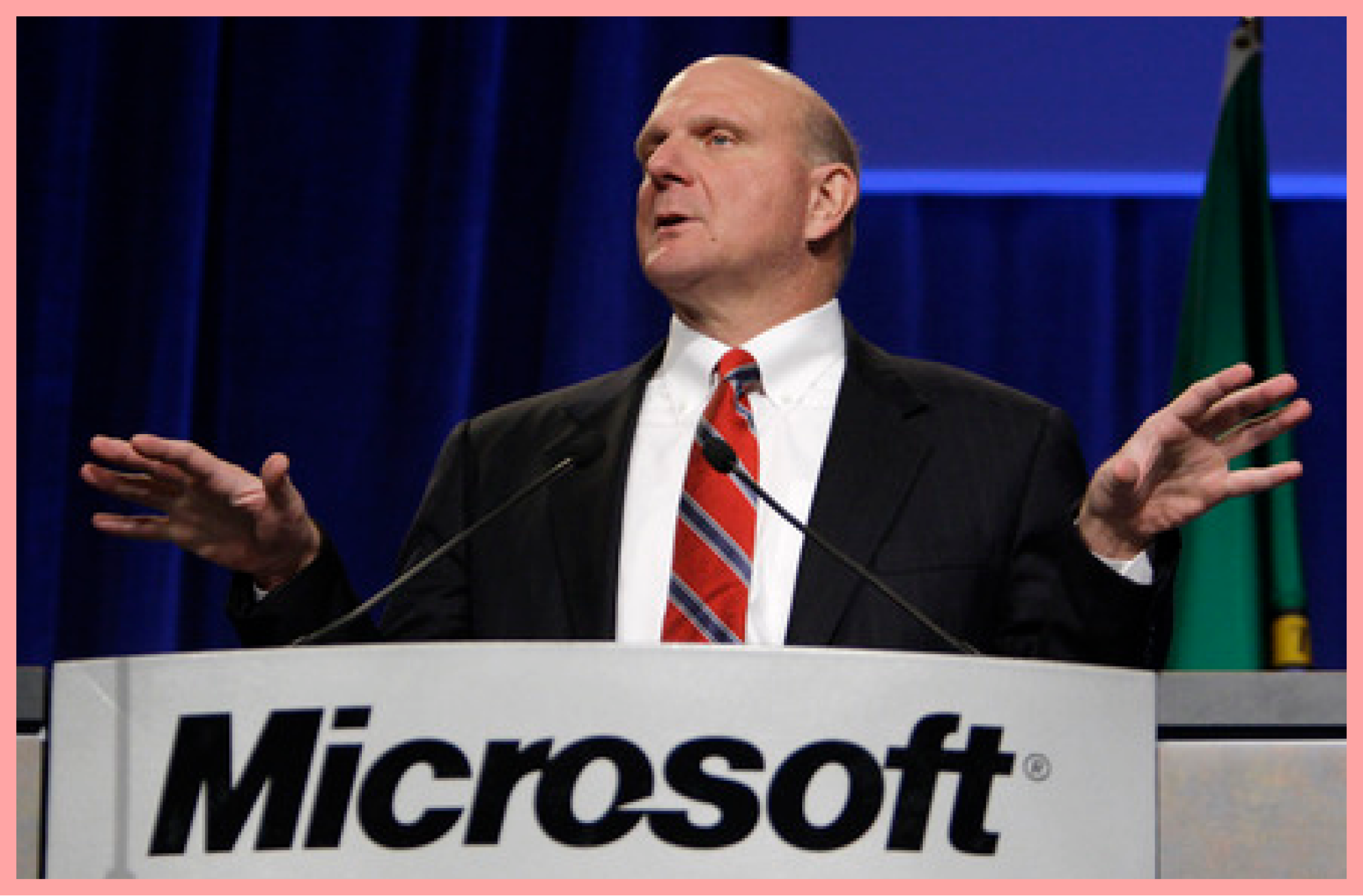
So I actually welcomed that challenge. I was excited to join a company that at the time was not the darling in the tech world. One of the things that shocked me the most was the pay. I had zero business making the money that I was making fresh out of college. I mean you have to realize that a year earlier I had literally called my mother to celebrate a 50 cent raise. So this was pretty awesome.
The second thing that was interesting was the amount of “lifers” that were there. These were people who had been working there for 20+ years. And it honestly felt like it was a retirement community. I felt that slowed down the pace a little bit.
But the amount of really smart people that Microsoft had at the time was ridiculous. Everyone there was like former McKinsey, former Goldman Sachs - just incredibly intelligent. They would just have insights that would blow my mind.
Yeah, I loved the rotational program. I got to do 6 months across different departments - we were actually referred to as the marines of Microsoft.
So I got to understand how the Marketing department worked. How the Sales department worked. One of my first projects at Microsoft was running the Pro forma valuation for acquiring Minecraft - I mean, what kid fresh out of college is running the very first excel sheet valuation on a multi-billion dollar acquisition?
I was super blessed that I was able to do these different rotations. In fact I even got to go to Germany, where I was able to learn more about the European market and interact with executives in Russia, Lithuania, etc. Working through these multinational projects and it was really awesome.
After the end of the rotational program though, I didn’t see as many opportunities for growth and I started getting bored. And I would look around on my own floor, see that everyone here was like 10 years my senior, nowhere near retirement age, and I just didn’t see a path forward.
I think your twenties are for learning and your thirties are for earning. And so I recognized that I was learning an incredible amount my first two years at Microsoft, but after that it started to feel like groundhog day.
Yeah, it was very hard. Both my parents were like you’re crazy. And like I said, Microsoft has a lot of “lifers” - they treat you really well, there are golden handcuffs, and they prevent you from leaving. So it was definitely a decision that I lost a lot of sleep on.
But I tell people that you need to move forward - the decisions that scare you and excite you are the best decisions for your life. And if you really think about it, your life is literally just the culmination of 3-4 important decisions that changed everything.
Leaving Microsoft was one of those decisions that changed everything. And honestly even going to Microsoft was one of those decisions that changed everything.
So for me, it was definitely scary, but in hindsight I am so glad that I made that decision. In fact, they say that you have a lot of the same thinking cells in your gut that you do in your brain. And a lot of the time it’s your brain that screws things up.
You know in your gut. But then your brain is like you didn’t think about X, Y, and Z.
During the interview process with Noah (founder of AppSumo), I mentioned that I thought AppSumo still had a lot of opportunity for growth. So going back to my Microsoft experience and about being the underdog, I thought AppSumo was a big underdog at the time.
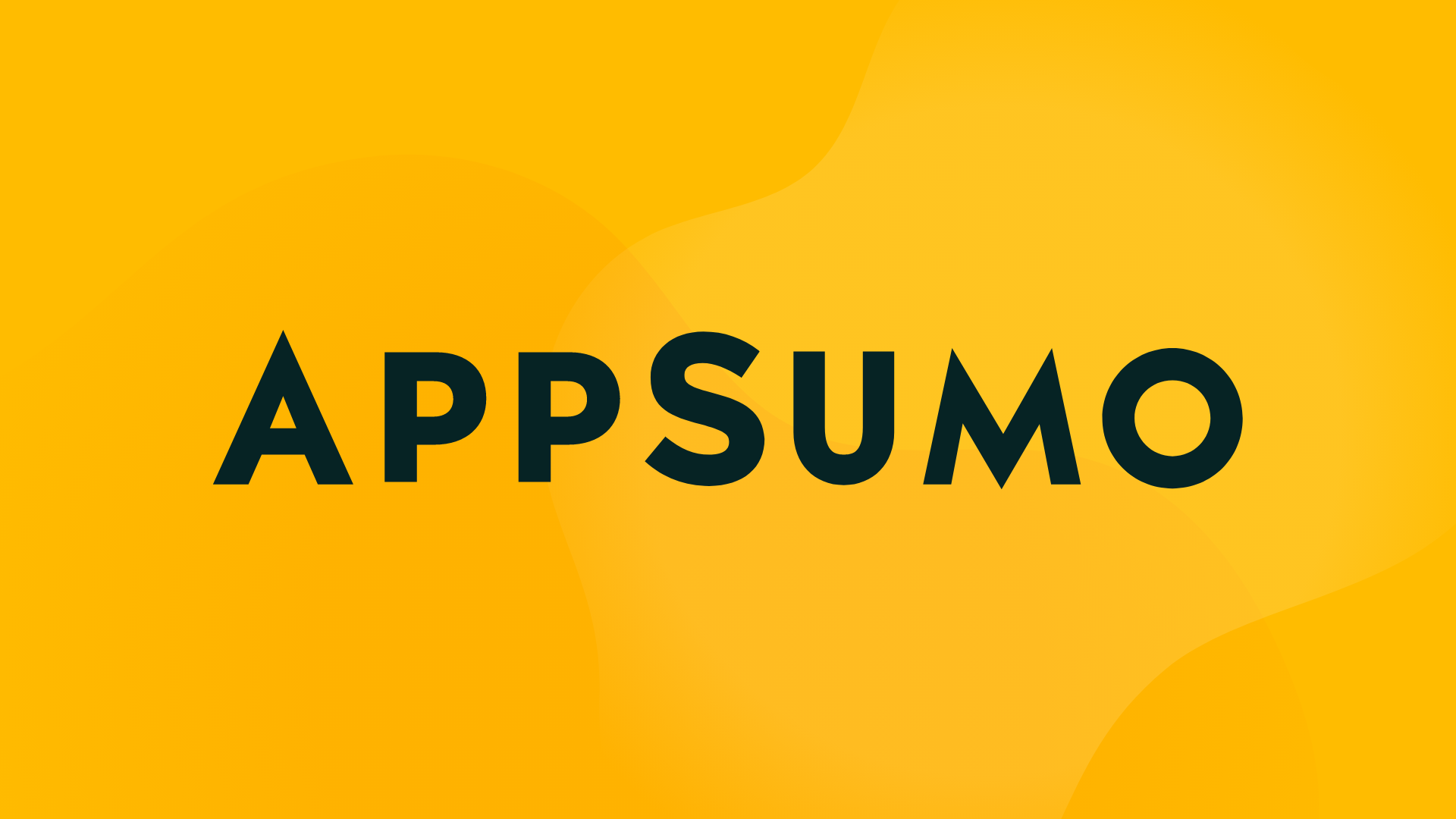
So I jumped at the opportunity and started off in a GM level position, with the expectation that after 6 months of experience under my belt, I’d transition into eventually running the company.
During those initial 6 months, I was expected to basically learn the playbook of what was currently working. A lot of it was business development - for instance, in my first 2 weeks, I was expected to close two deals.
Luckily, they did a great job of training me and the first 6 months went well. I then brought in my own spin to the business and within the first few months I started beating and far exceeding some of the targets that they had set out for me.
So 6-9 months in, I recognized that I had to start hiring for more roles. Here’s how I’d put: in phase 1, I am the machine. I am the one closing the deal, I am the one writing the copy and sending out the email, jumping in and answering customer support tickets, monitoring social media, and I’m basically doing it all.
I am the central cog of the wheel. And I recognized that there were certain parts of the process where I felt as if I spent more time, I could potentially add more value to the business.
So I asked myself - where am I the best? And where am I less good?
I knew that I wasn’t as detail oriented, but I was much better at sales. So part of the process was closing the deals, and then the more detail oriented part was actually setting them up in our backend. I realized that if I could stop doing that part and do more sales, we could probably end up going from 4 deals a month to 6 deals a month.
And could that end up growing the business 10-20%? I had a good gut feeling that it could.
So we started hiring more people. I noticed I was spending a lot of time writing copy and that it was taking a lot of mental energy. So we hired someone for that role too.
I didn’t recognize it at the time that I was going to be hiring for the whole process, but those early hires gave me the taste of what it would be like to scale the company and scale the role.
Basically, I examine certain steps I’m taking within our whole process, and I try to see how I can take those steps off my plate. This is because I want to minimize the time working in the business, and spend more time working on the business.
I think it’s something that came to me pretty naturally. There’s essentially two types of people - the artists and those who like to sort of manage the process (let’s call them coaches).
The artists love rolling up their sleeves and writing out that copy or doing the sales.
And then there’s the coach - these types of people don’t like to be as much in the game as they do coaching the game. You’ve got Steph Curry but you’ve also got Steve Kerr.
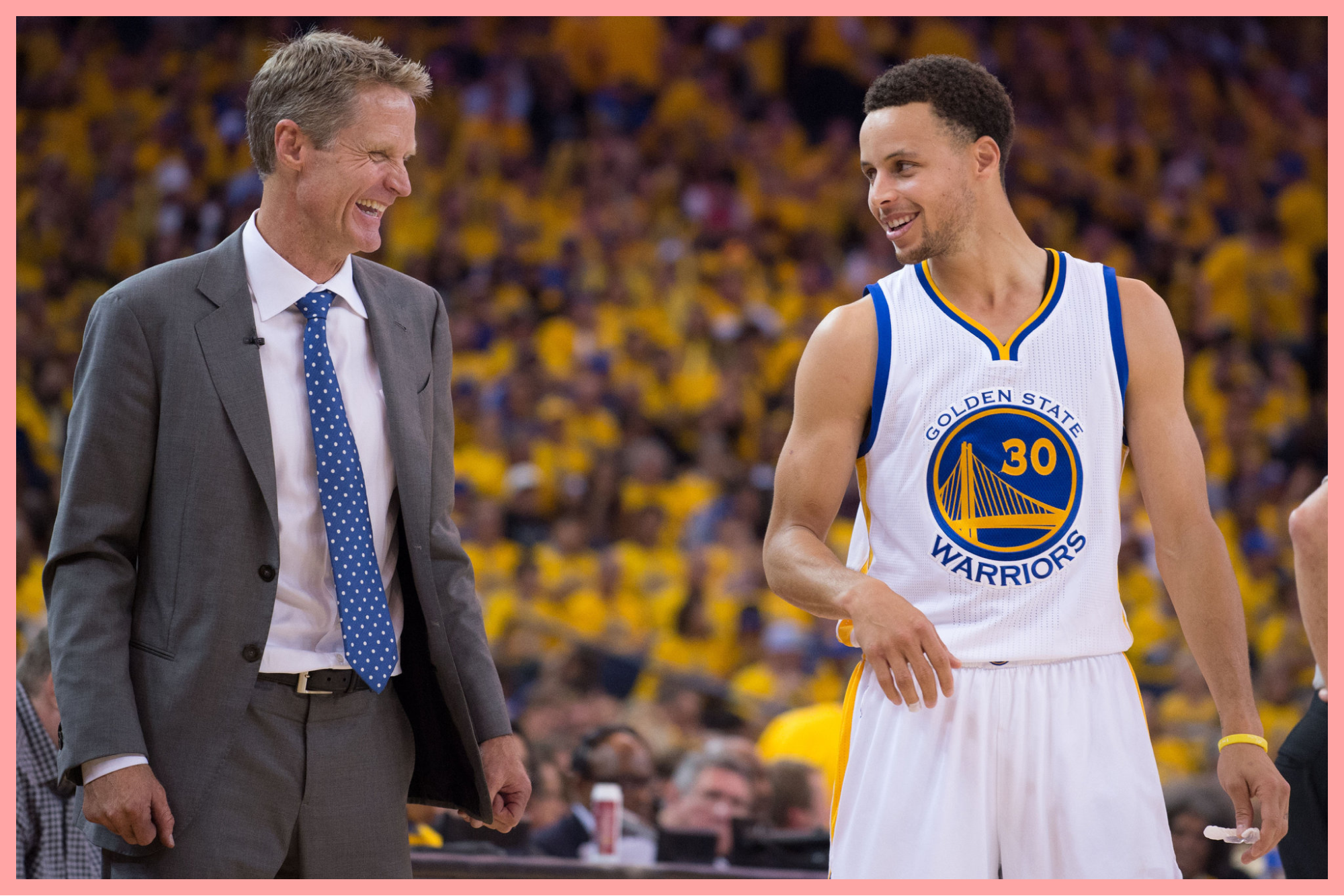
And those skill sets differ pretty strongly. For instance, what arguably made Michael Jordan one of the best players of all time is that he was a terrible coach.
So you have to recognize which lane am I in. Do I want to be an artist or do I want to be a coach? Do I enjoy being on the field or do I enjoy coaching the field?
Aligning your career path where your interests lie will ultimately allow you to unlock the right opportunities for you.
I think even as far back as in college. I ran for leadership positions in school groups, I was the one who always enjoyed being the project manager, I enjoyed the coordination and the coaching - I really enjoyed seeing my people succeed way more than getting the praise and actually succeeding myself.
So that’s where I get my energy from. I enjoy watching my people grow way more than back when I would be doing all parts of the process myself whilst sitting in a coffee shop.
And there’s no bad path. Sometimes people say the manager / coach is above the artist. But as we’ve seen, Michael Jordan is at a way higher level than any of his coaches. There’s no wrong path in my opinion. You just have to do what you enjoy more.
There’s also people who transition from one to the other. Steve Jobs before he got fired was an artist. He came back as CEO after they acquired NeXT.
I tell people that I want this team to grow to a level where if I were to leave, I don’t know if I could get hired back. I want to continue to elevate the average of the company. So that to me is the ultimate goal from the people perspective. Ayman Al-Abdullah
And him getting fired really forced him to take a step back and assess who he wanted to be in the long run.
Yeah, it’s one of many and definitely near the top. I tell people that a CEO needs to always just focus on 4 key decisions:
So in my opinion, the world’s best CEOs are out of the office 4 days a week because they’re focusing on these four decisions that allow us to work on the business versus in the business.
I tell people that I want this team to grow to a level where if I were to leave, I don’t know if I could get hired back. I want to continue to elevate the average of the company. So that to me is the ultimate goal from the people perspective.
For the strategy, something I think about is are we best serving our customers? How are we able to help them solve the problems that AppSumo is uniquely positioned to solve?
More fundamentally - I also want us to be able to continue to drive top line revenue growth whilst maintaining bottom level profitability in an efficient way.
So coming back to People - how are we translating this higher level strategy into daily actions that we can get our team behind. And that is a huge part that is both an art and a science. You’re managing people and they each have their own unique ways of working.
Finally, the last component is cash. It tends to be the one that gets ignored the most, but actually is the only thing that can put you out of business. You can recover from a bad hire. You can recover from a bad strategy. And you can even recover from bad execution.
But if there’s no cash in the bank, the business is over. So it’s important that as a CEO you are constantly managing these decisions that helps run the business in a long term and sustainable way.
The least favorite thing is probably as we’ve grown, the vectors of communication have increased exponentially. When you’re just one person, the amount of miscommunication is close to zero. But as you add more people, those vectors of communication increase exponentially - they actually call this Brooke’s Law.
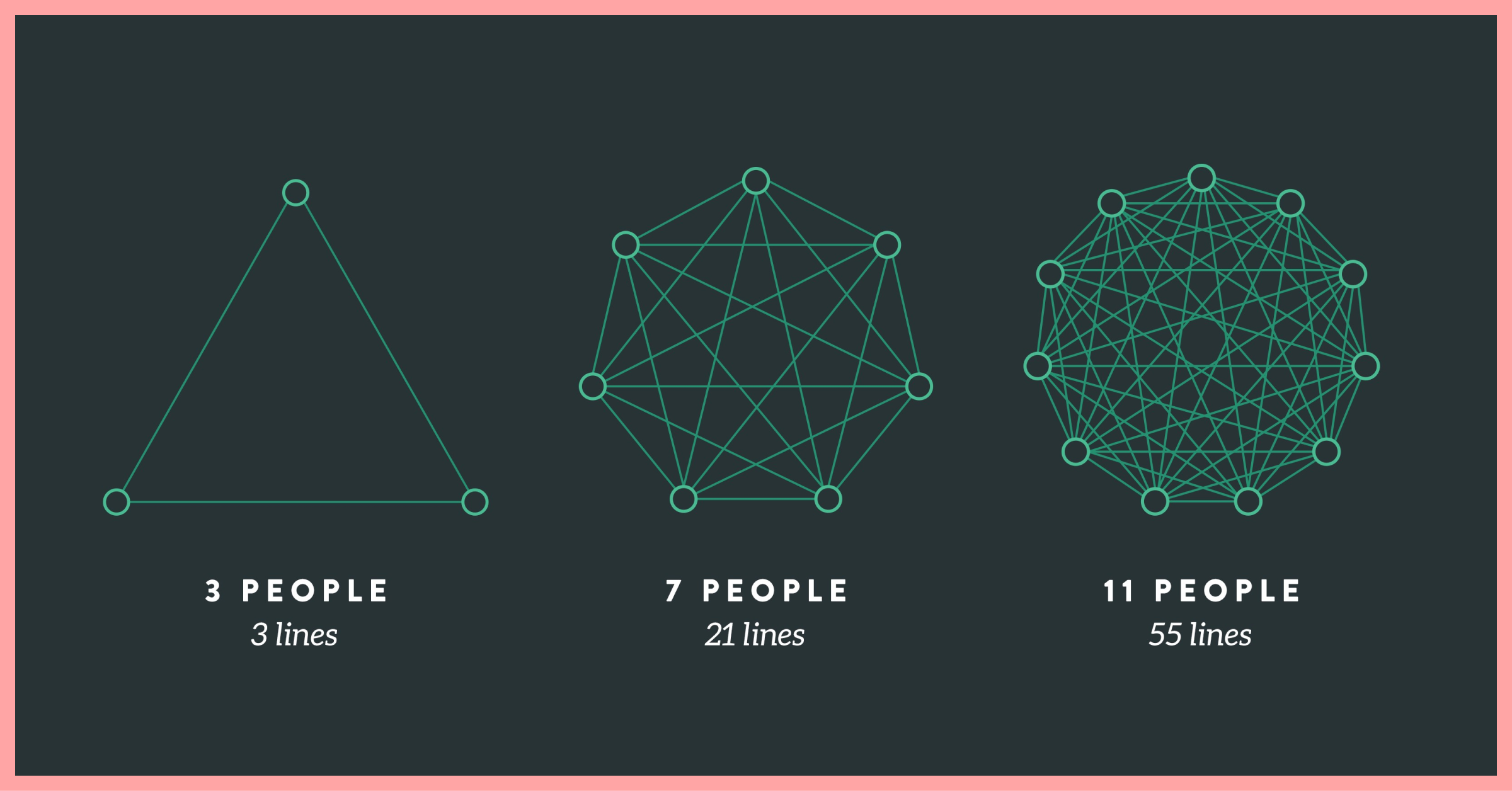
So scaling our communication channels and trying to minimize those modes of miscommunication is one of the pain points that’s actually a great growth opportunity. So we’ve rolled out some tools - we do internal team newsletters, create one page strategic plans and a bunch of other things.
That way more people can truly feel that they are on the same page as we keep growing the company. And as you grow, the tools that you use change as well.
So as a CEO, you have to make sure that you are bringing the appropriate tools at each level of growth. So a big part of my job is doing that research and examining our key constraints, bottlenecks, and problems, and then finding the right solutions.
I give people the analogy of a cockpit versus driving a car. When you’re driving a car, you really only need 3 or 4 metrics. So is this car running properly and in the right direction.
But as the business grows and its complexity grows, you transition from a car to a plane. There’s thousands of dials in a plane. And whilst most of the time you don’t need to look at each dial, you definitely need to look at the dials if the visibility is poor, if you’re running low on gasoline, if there’s an error with the machine etc.
All of those dials are critical for you to be able to diagnose the problem and more importantly safely land the plane, so that you can reassess & safely take off again.
So when we were at $3 million, it was much easier to just monitor a handful of KPIs. But as we’ve grown, it’s important for us to have KPIs for all the different departments that align and christmas tree up to the overall topline goal.
Some people call it a newsletter - I call it a good time. I write about tech careers and how you can get ahead in yours. It’s my best content (like this case study) delivered to you once a week.